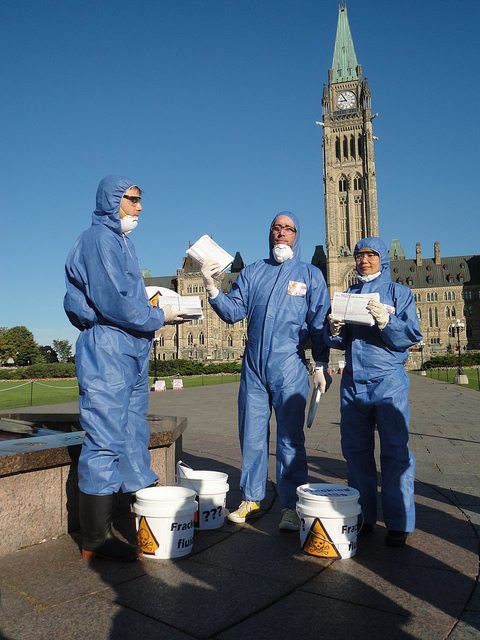The Council of Canadians is encouraged by the Newfoundland and Labrador government’s decision to look after the health and future of its citizens by placing a moratorium on hydraulic fracturing in the province. Last week, Minister of Natural Resources Derrick Dalley said that the government would not be “accepting applications for onshore and onshore to offshore petroleum exploration using hydraulic fracturing.”
“We are thrilled about Newfoundland’s moratorium and commend the government’s decision. We urge the government to take its time to investigate all the evidence on all aspects of fracking, and be truly consultative by incorporating community and First Nations input into their final decision,” says Angela Giles, Atlantic regional organizer for the Council of Canadians. “Clearly this is something that the New Brunswick government could learn from given the reopening of the legislature yesterday to a huge rally of opponents of fracking for shale gas. The New Brunswick government should follow suit and place a moratorium on fracking in order to conduct similar reviews and hold genuine public consultation.”
Regional opposition has been growing since last fall when communities learned about Shoal Point Energy’s proposal to the Canada-Newfoundland and Labrador Offshore Petroleum Board to perform onshore-to-offshore fracking for oil exploration in three sites along the West Coast of Newfoundland. The three sites included Sally’s Cove (an enclave in Gros Morne National Park), Lark Harbour (Bay of Islands) and Shoal Point (Port au Port).
Fracking in Gros Morne National Park received international attention when UNESCO raised concerns about how fracking would affect the park, potentially jeopardizing its World Heritage Site status.
“From coast to coast, communities are calling for a stop to fracking. We’re relieved to see that the Newfoundland government is taking a common sense approach by reviewing regulations, conducting impact studies and engaging the public before moving ahead,” says Emma Lui, national water campaigner for the Council of Canadians. “Now that both Quebec and Newfoundland and Labrador have put moratoriums on fracking, and Nova Scotia effectively has a moratorium while undergoing an independent review, it’s time for other provinces and the federal government to do the same.”
The Council of Canadians is a member of the Newfoundland and Labrador Fracking Awareness Network, a non-partisan network of organizations and individuals who have serious concerns about the potential risks of hydraulic fracturing (used in oil & gas exploration and development in Newfoundland and Labrador).
“We often see economic development being pitted against the environment,” adds Lui. “But with tourism generating over $1 billion in revenue for the province, fracking in Gros Morne National Park shows how a threat to water and the environment is also a threat to Newfoundland’s economy.”




